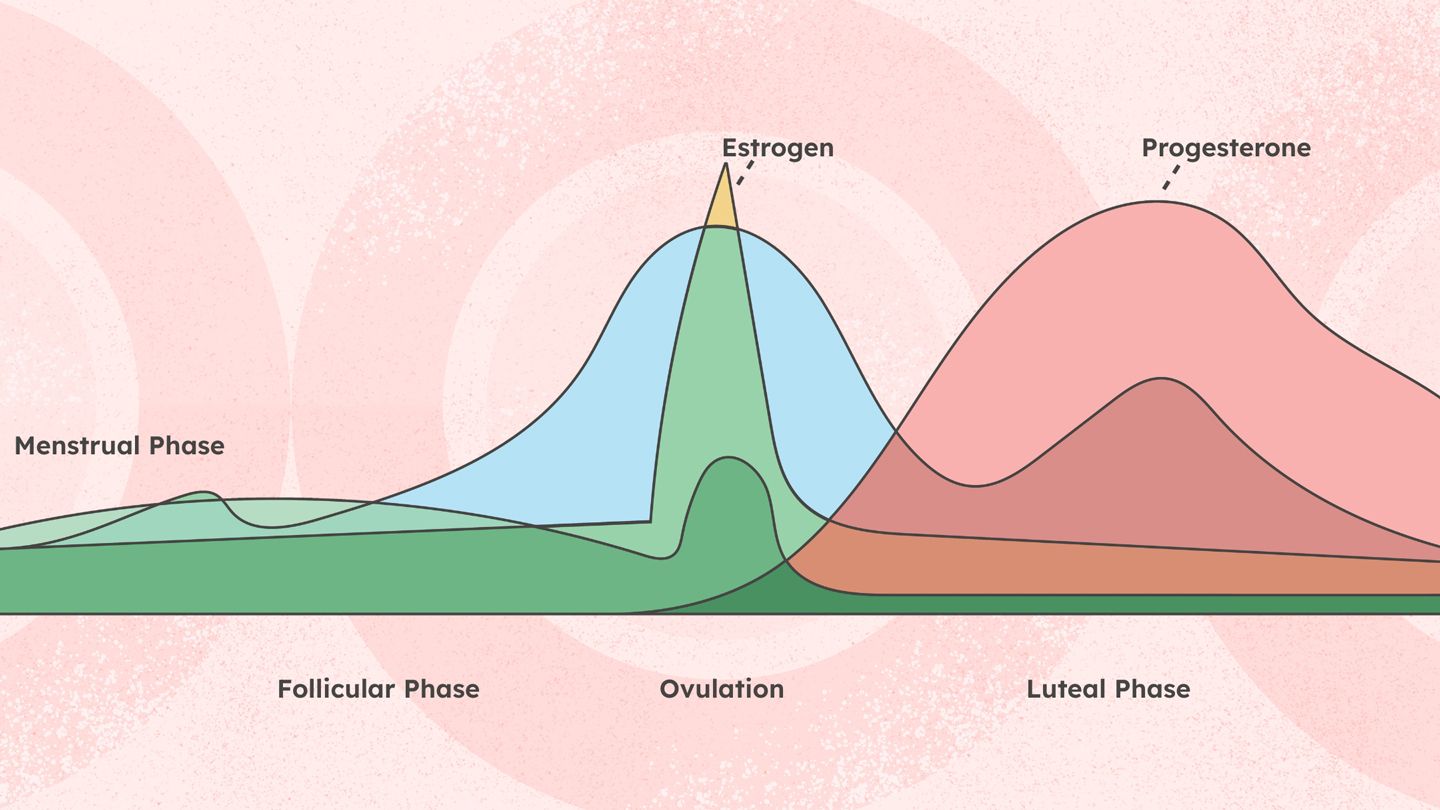These cycles don’t always run like clockwork. “The menstrual cycle is intimately associated with a woman’s physiologic balance, and there are many factors that can affect the menstrual cycle by disrupting this balance,” says Christopher Domush, MD, an associate professor in the Duke University department of obstetrics and gynecology in Durham, North Carolina.
Hormonal imbalances, stress, extreme exercise, sudden weight changes, certain medications, and reproductive health conditions like PCOS and endometriosis can all affect the regularity of the menstrual cycles. “Age also plays a role, with irregular cycles being common in teenagers and perimenopausal women,” says Tamara Guichard, MD, a gynecologist practicing in Forest Hills and New York City.
Here are a few things you can do to restore the balance and reduce symptoms from various stages of the menstrual cycle.
Eat a Cycle-Friendly Diet
An overall well-balanced diet with an emphasis on whole foods is a good strategy. These are some foods to eat.
- Omega-3 Fatty Acids Fatty fish like salmon, flax and chia seeds, nuts, soybean and canola oils, and fortified eggs, juices, and milk are rich in this nutrient. Omega-3s may make premenstrual syndrome (PMS) symptoms less severe.
- Iron You’ll find this mineral in poultry, fish, oysters, eggs, beans, whole grains, and iron-fortified cereals. Extra iron in the diet will replenish what you lose while menstruating, especially if you get heavy periods. It also fights PMS-related fatigue.
- Calcium Foods like low-fat milk and yogurt, as well as salmon, are rich in calcium. Calcium not only strengthens bones but is also helpful for combatting mood swings, cramps, and other menstrual symptoms.
- Complex Carbohydrates The body burns whole grains like brown rice and oats, as well as legumes like beans and lentils, slowly. This keeps blood sugar levels steady and prevents hunger-related mood swings and food cravings.
Here are some things to avoid:
- Salt Cut back on sodium-rich foods like lunch meat and processed foods. Too much salt can contribute to bloating, sore breasts, and swelling in the body.
- Caffeine and Alcohol Drinking alcohol, soda, or coffee within a few hours of bedtime can disrupt sleep.
Stay Active
Get Enough Sleep
Manage Stress
Read the full article here




